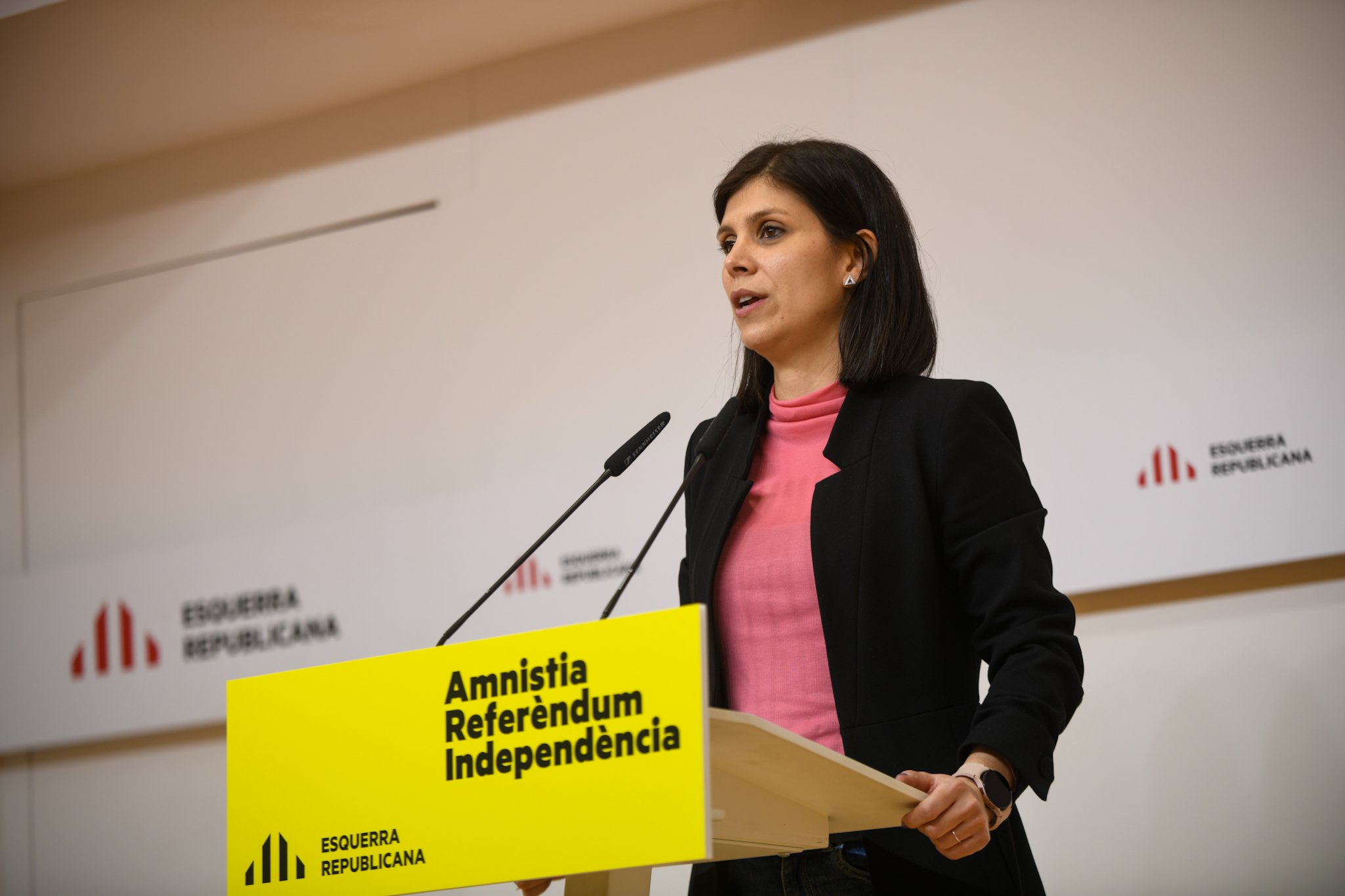There has been no normalization of relations between Catalonia and Spain, and the presence of Catalan president Pere Aragonès at the conference of Spanish regional presidents was exceptional due to the stressed global context arising from the war in Ukraine. Or at least that's what ERC spokeswoman Marta Vilalta tried to make clear today, after Spanish minister Isabel Rodríguez had asserted on Sunday that relations had now returned to normal: "That's the Spanish government's wishing thinking, but it's not like that. In fact, Pere Aragonès has already said that his participation in the conference was absolutely exceptional," said the ERC spokesperson, adding that relations will become normalized "when our demands are met and the political conflict can be resolved".
Vilalta made these statements a day after Aragonès's attendance at the conference of presidents but also following the ERC party conference at which the grassroots membership reaffirmed their commitment to dialogue with the state to resolve the political conflict, while also calling for a calendar for dialogue table meetings and accountability to the public. These issues were all included in a party report to which conference gave its overwhelming approval. However, the ERC spokeswoman said today that she would not speculate on dates for this dialogue table, while commenting that it would be good to have a meeting as soon as possible. This is what Vilalta has been saying for more than a month in the weekly ERC press conferences, and she acknowledged this too: "We continue as we do every week. We are working on it in a discreet way. We encourage the people working on this to make progress," she added, adding that "the more discretion and the less noise, the better they can move forward."
Criticisms
The claimed normalization of the relationship and the commitment to dialogue were much criticized by pro-independence leaders this Monday morning. Outside the Catalan High Court, where culture minister Natàlia Garriga had been called to appear under investigation for a possible role in the organization of the October 1st, 2017 referendum, the speaker of parliament, Laura Borràs, warned ERC that, in her view, "the dialogue the Spanish state is maintaining is its repression against the Catalan independence movement". Meanwhile, the CUP deputy Dolors Sabater asserted that relations must not be stabilized or normalized with the state because the conflict remains open.
For Vilalta, the repression is there every day and ERC is not normalizing the situation, giving as evidence of its continuing presence today's summons of Garriga to testify before a judge, which she characterised as a new instance of the general case against independentism. Nevertheless, she once again opted for political solutions: "It is through political and democratic means that the conflict must be resolved, and we know it can only be resolved with the participation of all citizens," she said.
Strike
Beyond the issues related to the dialogue table, Vilalta spoke about the teachers' strike called for Tuesday, motivated especially by the decision to bring forward the start of the school year, as announced by the education minister, Josep Gonzàlez-Cambray. The ERC spokesperson expressed her respect for the teachers' decision to protest, but said that the party was supporting its minister's decision because the change of the school timetable was "very positive and something very much shared by society".
The last issue that Vilalta assessed this Monday was the statements made this morning by former Catalan minister Clara Ponsatí, who said that the independence of Catalonia is so important as to be worth a person's life, because to die for a cause "is not a strange situation" in the course of history. Vilalta said that the party does usually avoid giving any assessment of the statements of other representatives, but she described Ponsatí's statement as "unfortunate".

